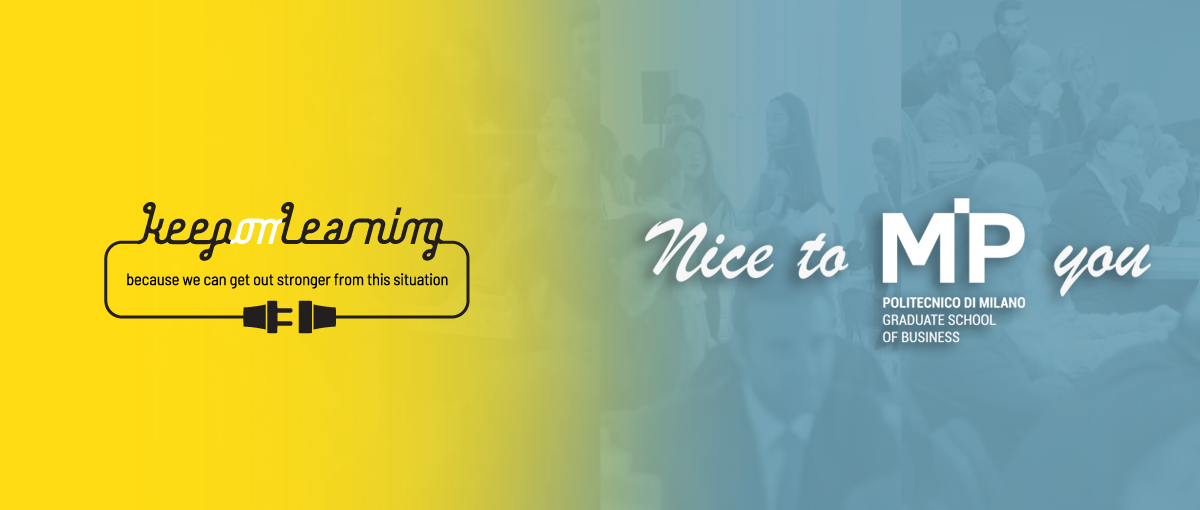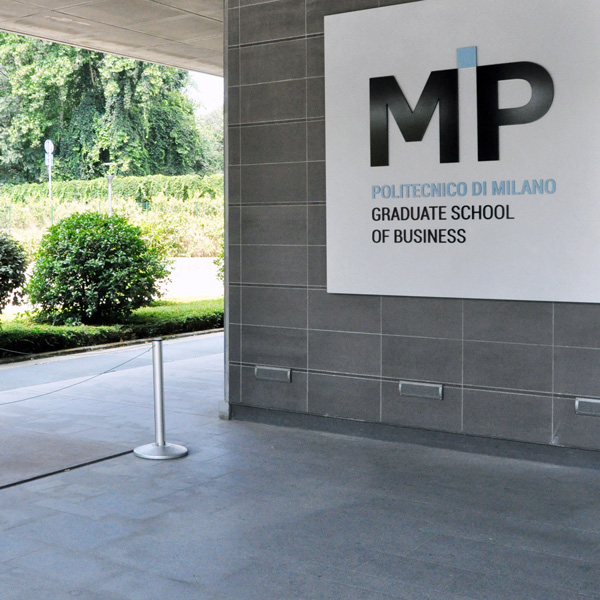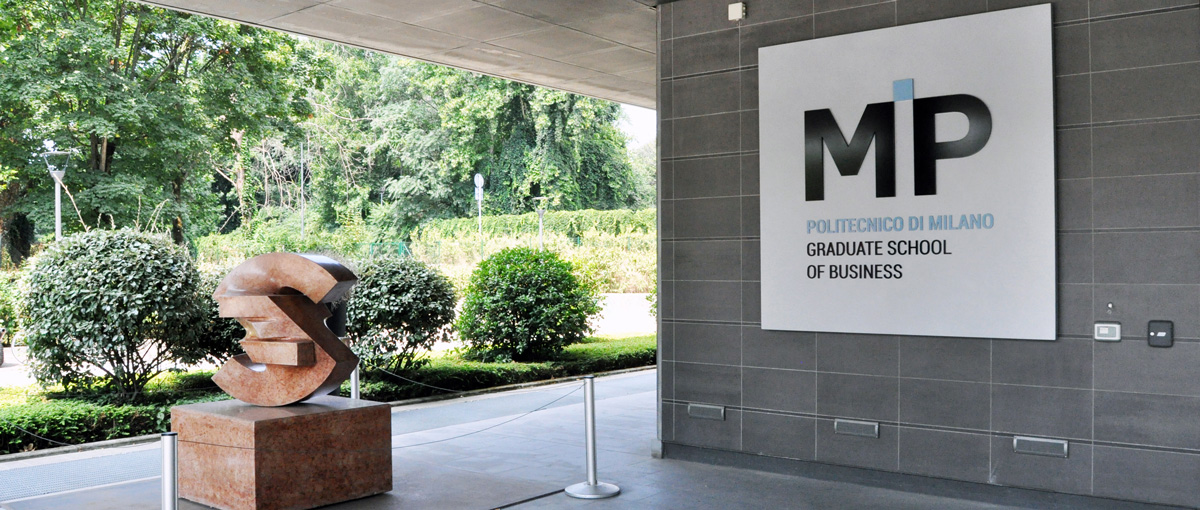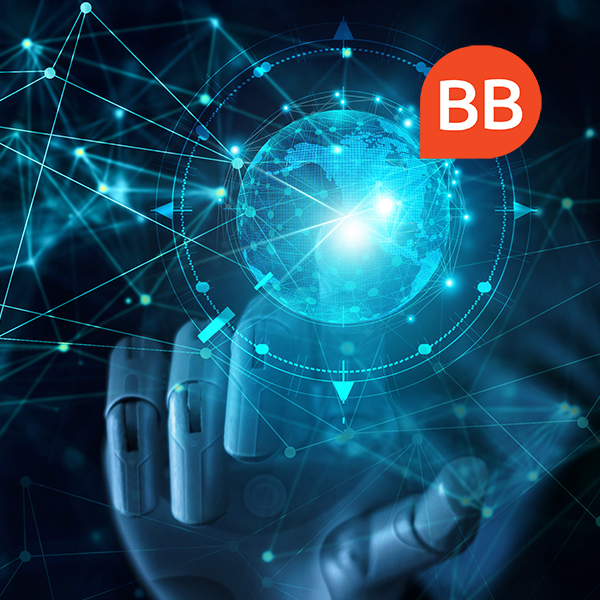
Business schools are moving towards a new paradigm, where the physical dimension is not alternative to the digital one; they are integrated
The boundary between online and on campus MBA programs is blurring, says Riccardo Mangiaracina, director of the International Flex Executive MBA at MIP Politecnico di Milano. “We’re moving towards a ‘phygital’ paradigm, where the physical dimension is not alternative to the digital one, but they are integrated,” he says.
Students on the school’s Full-time MBA are not limited to the campus in Milan: they can study in the cloud. “To guarantee the maximum possible flexibility, for the first three terms candidates can decide where and how to follow every lesson,” says Mangiaracina, whether online, in-person or anything in-between. They can tune into lessons on campus digitally via video link and also meet faculty in the flesh for tutoring.
Time-poor managers are less willing to forgot earnings and put their career progress on pause for two years to get a traditional campus MBA. This has prompted an increasing number of business schools to change their offer, with Online MBA degrees proliferating. Between 2013 and 2018 there was a 69 percent surge in the number of schools offering Online MBAs accredited by AACSB.
Meanwhile, demand for the Full-time MBA is waning. Global demand has been down for the past two years, according to exam administrator GMAC, and especially in the US where even some of the elite schools are reporting double-digit application declines. Some have taken to shutting their programs, like Iowa’s Tippie College of Business: between 2014 and 2018 the number of AACSB accredited institutions in the US fell 9 percent.
A move to ‘hybrid’ MBA programs
Online and in-class were previously two distinct markets but this distinction is increasingly being eroded. Many top business schools run ‘hybrid’ MBA programs that blend both digital and physical study, giving students the best of both worlds. These include courses at Babson College and Durham University Business School
“The future of the MBA will be a combination of both online and offline to bring a truly immersive experience to students,” says Pietro Micheli, director of the distance learning MBA at Warwick Business School in the UK. “Putting lectures on video means more time can be given to discussion and seminars where ideas and theories are analyzed more.”
The blurring of these boundaries means schools will continue to innovate, which benefits students handsomely. Warwick has two film studios that develop online business games where students can simulate what happens when they make strategic management decisions, for example. The school is also trialling a virtual reality experience that brings learning to life.
“This improves students’ interpersonal skills and leadership qualities that are needed to motivate and work within a team,” says Micheli.
At the Tepper School of Business at Carnegie Mellon University, the Hybrid MBA uses the same professors, career services and leadership training as the full-time version, and students can transfer between the two courses.
“Students don’t want to compromise just because they are going to school online,” says Cindy McCauley, executive director of online masters programs. “As such, schools are going to have to adjust to meet rising expectations of students looking for more than just a way to check the MBA box.”
In particular, schools’ career service will need to adapt to take into account the different job prospects between online and full-time students. The latter students typically quit their jobs to do the MBA, so are more likely to make a career switch than the former. Online students, on the other hand, generally choose to stay in their job and are more likely to want to progress in that role.
“As a result, our Online MBA program career counselling involves a career coach working one-on-one with students,” says Patricia Mills, vice dean of online courses at USC Marshall School of Business. The career service for the full-time program tries to provide more opportunities to connect students with prospective employers on campus for interviews and career fairs.
It is a similar story at Warwick, where Micheli adds: “The average salary increase for distance learning MBA graduates was 34 percent three years after graduation. But they are later into their careers and typically in senior management role so the jump in earnings is never as big as the full-time MBAs, whose increase is 94 percent.”
Online vs. in-class: how to decide on an MBA?
How can students decide which degree format to take? Micheli says Online MBAs allow people to connect with other students from all over the world to understand different cultures and make business contacts they would never otherwise have.
A full-time MBA on the other hand allows people to step out of their hectic work life, learn skills and knowledge across every aspect of an organization and give them breathing space to ponder their next career move.
Mills at USC Marshall says that ultimately, a high-quality MBA equips professionals with the business knowledge needed to succeed in today’s world, regardless of the mode of study.
“Whether those courses are taken online or on campus, part-time or full-time, the student is likely studying the same concepts and completing similar assignments,” she says.
“Schools are finding ways to reach different students with different needs.”
The trend is ultimately good news for students, says DR Widder, vice president of innovation at Babson College.
“Overall this clash is good for students, as it puts pressure on schools to make available more of the benefits of each type of program to all students.”
“Students want more flexibility. This challenges schools to make program elements and courses from one program accessible to others, creating many internal challenges but in the end, serving students better.”
Read the original article on FINDMBA
























